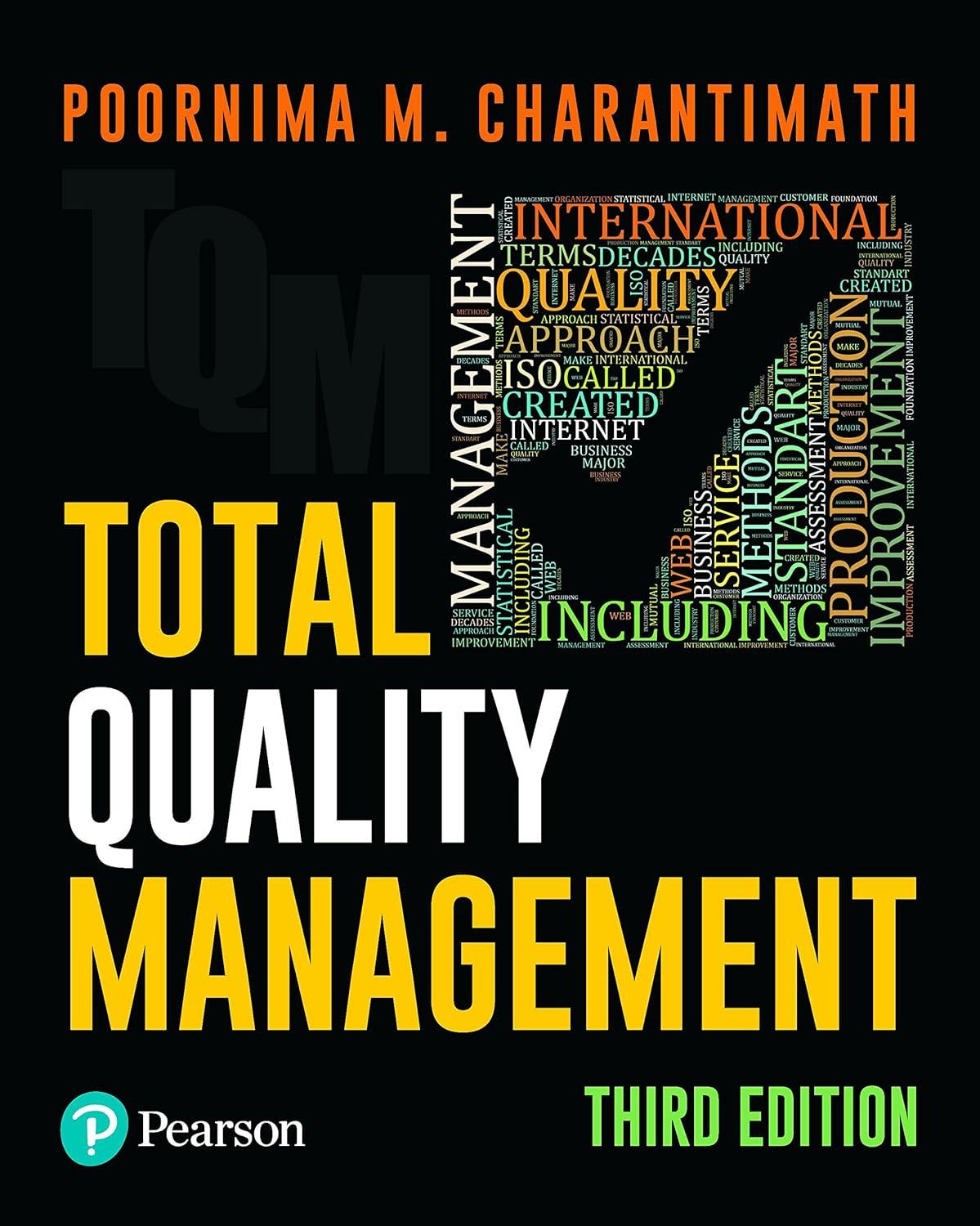Hyundai Motors India Limited, a 100 per cent subsidiary of the South Korea-based Hyundai Motor Company, started
Question:
Hyundai Motors India Limited, a 100 per cent subsidiary of the South Korea-based Hyundai Motor Company, started its operations in 1996. In September 1998, Hyundai India started mass production of its well-known hatchback “Santro.” It launched its second model “Accent” in October 1999. It started establishing its products in the global market in 2000. It launched its super luxury sedan “Sonata” in July 2001.
As per Hyundai India’s policy, quality simply does not mean meeting specifications. Quality for Hyundai India means meeting customer requirements and exceeding their expectations.
The company also concentrates on indirect customers and was the first to introduce MPFI (Multi-point fuel injection) in 1998 for the small car segment, even when the Euro II standards were not mandatory. This case study focuses on how Hyundai has been able to successfully adopt the automotive standard QS 9000.
QS 9000
QS 9000 is a sector specific common supplier quality standard for the automotive industry.
In 1988, Chrysler Corporation, Ford Motor Company and General Motors Corporation came together to form the Supplier Quality Requirements Task Force to standardize reference manuals, reporting formats and technical nomenclature for all documents related to supplier requirements. In 1992, the task force harmonized the fundamental supplier quality systems manuals and assessment tools. This gave rise to Quality System Requirements QS 9000—a common supplier quality requirements standard that was adopted by all three automotive companies. It is based on the ISO 9001. However, it contains additional requirements peculiar to the automotive industry. Today many automotive companies have adopted QS 9000.
QS 9000 defines the fundamental quality system expectations of Chrysler, Ford, General Motors and other subscribing companies for internal and external suppliers of production and service parts and materials. QS 9000 is a harmonization of Chrysler’s Supplier Quality Assurance Manual, Ford’s Q-1011 Quality Systems Standard and General Motors’ NAO Targets for Excellence and supersedes all editions of these documents. The benefits of QS 9000 certification include improved quality, improved efficiency, improved delivery and company morale, improved internal and external communication.
The QS 9000 applies to all internal or external, potential or existing suppliers’ vendors/sub-
contractors of production materials, production or service parts, heat-treating, painting, plating, finishing services who supply to OEM (Original Equipment manufacturers) customers subscribing to the QS 9000 standard.
QS 9000 is a supplement to ISO 9000 with additional requirements for each ISO 9001.
The standard has undergone two revisions since its inception. The third edition of QS 9000 standard comprises two primary sections. Section I deals with ISO 9000-based requirements and sector specific requirements while Section II deals with customer-specific requirements.
QS 9000 at Hyundai
Hyundai India was certified to QS 9000 in January 2002. QS 9000 is a customer-driven automotive standard that focuses on defect prevention, continuous improvement and reduction of wastage or variation in the supply chain, development of sub-contractors, product quality, cost, delivery and service. It is based on a preventive methodology and uses disciplined problem-solving methods.
Benefits of QS 9000 Certification for Hyundai
After QS 9000 certification, activities were streamlined and a focused approach to planning was established. A team of professionals started concentrating on solving problems and identifying potential areas of improvement. The main benefits of QS 9000 were:
• The attitude of workers improved. They felt encouraged to come out with more ideas on mistake-proofing, defect-prevention, statistical analysis of a particular activity, etc.
• The company was able to identify potential failures of the product and take control measures in time by adoption of Failure Mode and Effect Analysis (FMEA).
• Hyundai was able to measure the customer satisfaction/dissatisfaction levels, whereby they were able to improve products through process control.
• Hyundai has been able to improve the direct pass ratio of vehicles. The field claims on product have also reduced.
• Customer complaints were analysed by the auditors at length and they also looked at the corrective and preventive action plan. By adopting QS 9000, the company has eliminated all unrelated/waste processes, non-value added solutions, thereby focusing only on the customer requirements.
• Employees could relate to QS 9000, as it was close to their work. The employees became more proactive.
The company also realised the importance of the competence of the certification body in implementing a standard. The full objective of the standard can be achieved only if the certification body is competent.
Questions For Discussion
1. Why did Hyundai decide to implement the QS 9000 system?
2. What is the difference between ISO 9000 and QS 9000?
3. Explain the QS 9000 system.
4. What were the benefits of QS 9000 implementation at Hyundai?
Step by Step Answer:






